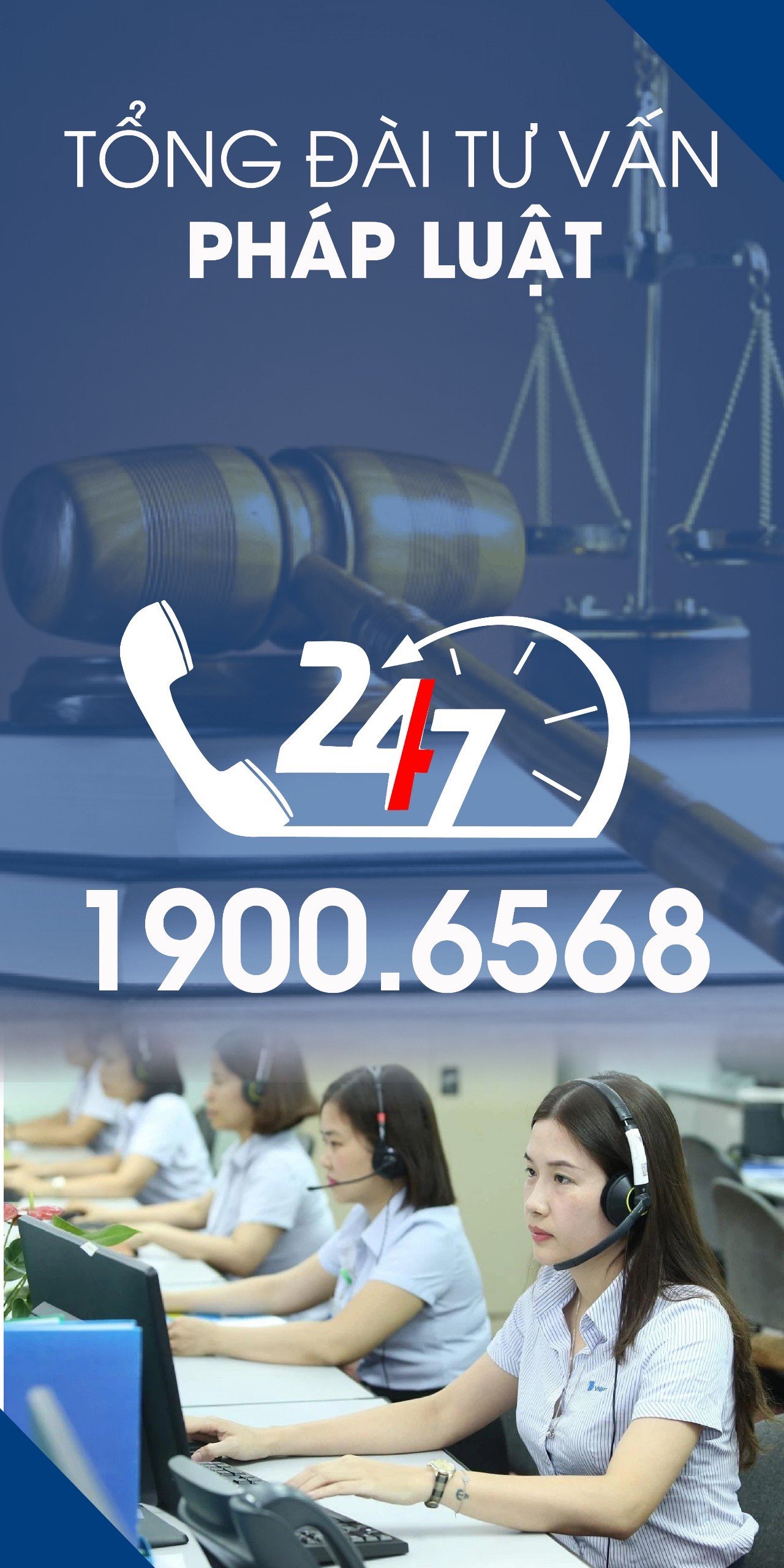Tiếng Anh lớp 8 Unit 7: Pollution (Ngữ pháp và bài tập) là tài liệu tham khảo giúp học sinh nắm vững kiến thức. Trong tài liệu này, bạn sẽ tìm thấy các phần ngữ pháp cần biết và các bài tập để rèn kỹ năng. Hãy sử dụng tài liệu này để nâng cao trình độ tiếng Anh của mình và hiểu rõ hơn về vấn đề ô nhiễm.
Mục lục bài viết
1. Từ mới – Tiếng Anh lớp 8 Unit 7: Pollution:
Home village (n) | Quê nhà |
Factory (n) | Nhà máy |
Almost (adv) | Hầu như |
Believe (v) | Tin tưởng |
Damage (v, n) | Phá hủy, sự phá hủy, tổn thất |
Die (v) | Chết |
Dead (adj) | Chết |
Polluted (adj) | Bị ô nhiễm |
Pollution (n) | Sự ô nhiễm |
Continue (v) | Tiếp tục |
Dump (v) | Đổ, vứt bỏ |
Poison (n) | Chất độc |
Poisonous (adj) | Có độc, nhiễm độc |
Aquatic (adj) | Sống ở dưới nước |
Dirty (adj) | Bẩn thỉu |
Sneeze (v) | Hắt hơi |
Come up with (v) | Nghĩ ra |
Environmental (adj) | Thuộc môi trường |
Give presentation (v) | Thuyết trình |
Illustrate (v) | Minh họa |
Surprise (v, n) | Gây ngạc nhiên, sự ngạc nhiên |
Water pollution (n) | Ô nhiễm nước |
Noise pollution (n) | Ô nhiễm tiếng ồn |
Radioactive pollution (n) | Ô nhiễm phóng xạ |
Land/soil pollution (n) | Ô nhiễm đất |
Thermal pollution (n) | Ô nhiễm nhiệt |
Air pollution (n) | Ô nhiễm không khí |
Light pollution (n) | Ô nhiễm ánh sáng |
Visual pollution (n) | Ô nhiễm tầm nhìn |
Stream (n) | Dòng suối |
River (n) | Dòng sông |
Ocean (n) | Đại dương |
Change (v) | Thay đổi, sự thay đổi |
Atmosphere (n) | Bầu không khí |
Contain (v) | Chứa đựng |
Gas (n) | Khí gas |
Dust (n) | Bụi |
Fume (n) | Khói thải |
Harmful (adj) | Có hại |
Radiation (n) | Phóng xạ |
Contaminant (n) | Chất gây ô nhiễm |
Contamination (n) | Sự ô nhiễm |
Ground water (n) | Nước ngầm |
Earth’s surface (n) | Bề mặt trái đất |
Occur (v) | Xảy ra |
Telephone pole (n) | Cột điện thoại |
Advertising billboard (n) | Biển quảng cáo |
Overhead (adj) | ở trên đầu |
Acid rain (n) | Mưa axit |
Chemical (adj) | Thuộc hóa học |
Waste (n) | Chất thải |
Float (v) | Nổi |
Breathing problem (n) | Vấn đề hô hấp |
Throw (v) | Ném vứt |
Litter (v) | Xả xác, rác |
spill (v) | Làm tràn, làm đổ |
Lead to (v) | Dẫn tới |
Household (n, adj) | Hộ gia đình, thuộc gia đình |
Birth defect (n) | Khuyết tật bẩm sinh |
Expose (v) | Tiếp xúc |
Tiny species (n) | Sinh vật nhỏ |
Disease (n) | Bệnh tật |
Dramatic (adj) | Nghiêm trọng |
Reduction (n) | Sự rút gọn, sự giảm giá |
Recycle (v) | Tái chế |
Issue (n) | Vấn đề |
Behaviour (n) | Hành vi |
Pattern (n) | Kiểu mẫu, gương mẫu |
Renewable (adj) | Có thể làm mới, có thể tái sinh |
Decrease (v) | Làm giảm |
Rubbish (n) | Rác thải |
Resident (n) | Cư dân |
Complain (v) | Phàn nàn |
affect (v) | Gây ảnh hưởng |
Blood pressure (n) | Huyết áp |
Hearing loss (n) | Sự mất khả năng nghe |
Industrial (adj) | Thuộc về công nghiệp |
Herbicide (n) | Thuốc diệt cỏ |
Weed (n) | Cỏ dại |
Source pollutant (n) | Nguồn gây ô nhiễm |
Discharge (v, n) | Sự dỡ hàng, sự tháo ra |
Result in (v) | Dẫn tới, gây ra |
Vehicle (n) | Phương tiện giao thông |
Serious (adj) | Nghiêm trọng |
Global warming (n) | Sự nóng lên toàn cầu |
untidy (adj) | Lôi thôi, lếch thếch |
2. Tiếng Anh lớp 8 Unit 7: Pollution (Ngữ pháp):
I/ LÝ THUYẾT CÂU ĐIỀU KIỆN
Trong bài học này, chúng ta sẽ ôn tập hai loại câu điều kiện là câu điều kiện loại 1 và câu điều kiện loại 2.
Câu điều kiện loại 1
Câu điều kiện loại 1 được sử dụng để diễn tả những sự việc hoặc hiện tượng có thể xảy ra ở hiện tại hoặc trong tương lai.
Cấu trúc: If + S + V (HTĐ), S will/ can V.
Ví dụ:
If I prepare for my final exam carefully, I will pass the exam. Moreover, if I review all the materials and practice answering sample questions, my chances of getting a high score will significantly increase.
If she goes to bed late, she will be tired tomorrow. In addition, it is important for her to get enough sleep to ensure she can perform well throughout the day.
If you don’t buy this dress, others will take it. Remember, if you don’t make a decision soon, someone else might snatch this dress away.
NOTE: Thì hiện tại đơn cũng có thể được sử dụng trong mệnh đề chính để diễn tả một điều kiện luôn đúng. For instance, if you eat a balanced diet and exercise regularly, you will have a healthy lifestyle.
Câu điều kiện loại 2 diễn tả sự việc không thể xảy ra ở hiện tại hoặc tương lai.
CẤU TRÚC: If S + Ved (QKĐ), S + would/ could + V.
LƯU Ý: Với câu điều kiện loại 2, tobe luôn được chia về were cho mọi chủ ngữ.
II/ LIÊN TỪ CHỈ NGUYÊN NHÂN – KẾT QUẢ
Các liên từ chỉ nguyên nhân – kết quả trong bài học này là:
Liên từ kết hợp với mệnh đề (S – V – O): because, since, as
CẤU TRÚC: S – V – O + because/ since/ as + S – V – O
eg:
We protect the environment because it saves our lives. Additionally, taking care of our surroundings ensures a healthier future for the next generations.
She called me since she wanted to borrow some money from me. Moreover, she needed financial assistance to cover her expenses.
As this chemical is harmful, the government prohibited the production of it. Consequently, the authorities banned the manufacturing of this substance to safeguard public health.
Liên từ kết hợp với danh từ/ danh động từ (N/ V-ing): because of, due to, owing to
CẤU TRÚC: S – V – O + because of/ due to/ owing to + N/ V-ing
eg:
They stayed at home because of not having anything to do. Moreover, they used the opportunity to relax and spend quality time with their families.
Due to the rain, the event had to be cancelled. The inclement weather conditions forced the organizers to call off the event for safety reasons.
My mother can’t go with me owing to her work. Unfortunately, her work commitments prevent her from accompanying me on this trip.
Các cụm động từ chỉ quan hệ nguyên nhân – kết quả: cause, lead to, result in
CẤU TRÚC: S + cause/ lead to/ result in + N
eg:
Human’s deforestation causes depletion in the Ozone layer. Furthermore, the destruction of forests contributes to the thinning of the Ozone layer, which has severe consequences for the environment.
Air pollution leads to a lot of respiratory diseases. In addition, the presence of pollutants in the air significantly increases the risk of developing respiratory illnesses among individuals.
Overpopulation results in food insecurity. Moreover, the rapid growth of the population poses challenges in ensuring sufficient food supply for everyone.
3. Tiếng Anh lớp 8 Unit 7: Pollution (Bài tập):
Question I. Choose the best answer. (A,B, C or D)
1.I like __back in my home village on holiday.
A. comes
B. come
C. came
D. coming
2. If the factory ____dumping poison into the lake, all the fish and other aquatic animals will die.
A. continues
B. to continue
C. continued
D. will continue
3. Water ____ in the lake has made the fish die.
A. pollution
B. pollute
C. polluted
D. polluting
4. Mi and Nick like __back Mi’s home village on holiday.
A. comes
B. come
C. came
D. coming
5. If the factory continues dumping poison into the lake, all the fish and other aquatic animals ____.
A. die
B. to die
C. dead
D. will die
6. Water pollution is the ____ in the lake has made the fish die.
A. contaminating
B. contaminate
C. contaminated
D. contamination
7. If we __water carefully, more people will have fresh water.
A. will use
B. would use
C. using
D. use
8. If the factory continues dumping poison ____ the lake, all the fish and other aquatic animals will die.\
A. into
B. to
C. about
D. in
Question II. Choose the best answer. (A,B, C or D)
1. Mi and Nick like __back Mi’s home village on holiday.
A. comes
B. come
C. came
D. coming
2. If the factory ____dumping poison into the lake, all the fish and other aquatic animals will die.
A. continues
B. to continue
C. continued
D. will continue
3. Water ____ in the lake has made the fish die.
A. pollution
B. pollute
C. polluted
D. polluting
4. If the air wasn’t dirty, I ____ so much.
A. wouldn’t sneeze
B. sneeze
C. would sneeze
D. to sneeze
5. If the factory continues dumping poison into the lake, all the fish and other aquatic animals ____.
A. die
B. to died
C. dead
D. will die
6. Water pollution is the ____ in the lake has made the fish die.
A. contaminating
B. contaminate
C. contaminated
D. contamination
7. If I were you, I __ that car.
A. would buy
B. buy
C. bought
D. buying
8. If we recycle more, we ____the Earth.
A. help
B. would help
C. helping
D. will help
Conditional Sentence Type I : Câu điều kiện loại 1
Question I. Put the verbs in brackets into the correct form.
(Chia những động từ trong ngoặc đơn vào đúng hình thức).
1.If we (recycle) ________ more, we will help the Earth.
2. Factories (not dump) __waste into rivers if the government fine them heavily.
3. If people travel to work by bus, there (be) __fewer car fumes.
4. We (save) ____thousands of trees if we don’t waste paper.
5. If we use water carefully, more people (have) __fresh water.
6. If the factory (continue) ____ dumping poison into the lake, all the fish and other aquatic animals will die.
7.If we recycle more, we (help) ____ the Earth.
8. If people (travel)____to work by bus, there will be fewer car fumes.
9. We save thousands of trees if we (not waste)___don’t waste paper.
10. Factories don’t dump waste into rivers if the government (fine) ___ them heavily.
Question II. Put the verbs in brackets into the correct form.
(Chia những động từ trong ngoặc đơn vào đúng hình thức).
1. If he (study) ____ harder, he can pass an exam.
2. She may be late if she (not hurry) ____.
3.If you study harder, you (pass) ____ the exam.
4. If you are kind to me, I (be) ___ good to you.
5.If he (give) ___ up smoking, as his doctor orders, he will be soon well again.
6. You (not pass) ___ your driving test unless you drive more carefully.
7. He’ll be ill if he (not stop) ____ worrying so much.
8. We’ll go to the beach tomorrow if it (be) ____ nice.
Conditional Sentence Type II : Câu điều kiện loại 2
Question III. Put the verbs in brackets into the correct form.
(Chia những động từ trong ngoặc đơn vào đúng hình thức).
1. If I were you, I (look) ____ for a new place to live.
2. If Lan wasn’t ill, she (join) ____ out tree planting activity.
3.If there were fewer cars on the road, there (be) ____ less pollution.
4.If people really cared about the environment, they (not dump) ____ waste into the lake.
5.If there was no fresh water in the world, what (happen) ____.
6.If you (be) ____ the president, what would you do to help the environment ?
7.They get sick so often.If they exercised more, they (be) ____ heathier.
8.If I (have) ____ one million US dollars , I would build more parks in our city.
9.Quan’s mother is unhappy.If Quan tided his room every day, his mother (not be) __________
so upset.
10.There isn’t a garden at house .If there were, we (grow) ____ vegetables.
Question IV. Put the verbs in brackets: Conditional sentence type I or type II.
1. If you come with me, I (do) ………. the shopping with you.
2. Jimmy (help) ……… his mother in the garden if she reads him a story this evening.
3. If it (ran) ………., I will stay at home.
4. Our teacher will be happy if we (learn) ……. the poem by heart.
5. If they had enough money, they (buy) ………. a new car.
6. We (pass) ………. the exam if we studied harder.
7. If Pat (repair) ………. his bike, he could go on a bicycle tour with us.
8. She would get 100 pounds if she (sell) ……….. this old shelf.
9. If I were you, I (invite) ……….. Jack to the party.
10. If the weather (be) ……….. fine, the children can walk to school.
Question V. Choose the correct answer.
1. If I ______ you, I would do that.
A. am B. were C. are D. had been
2. If I were offered the job, I think I ______it.
A. take B. will take C. would take D. would have taken
3. I would be very surprised if he ______.
A. refuses B. refused C. had refused D. would refuse
4. If she sold her car, she ____________ much money.
A. gets B. would get C. will get D. would have got
5. If someone ______ in here with a gun, I would be very frightened.
A. would walk B. walks C. had walked D. walked
6. We’ll get wet if we ______out.
A. go B. did go C. went D. had gone
7. If I ______ go shopping, I some food.
A. buy B. will buy C. would buy D. would have bought
8. If I find it, I ______you.
A. will tell B. would tell C. had told D. told
9. What would you do if y______ou a million dollars ?
A. would win B. win C. had won D. won
10. If ______ you from London to Glassgow, which way would you go ?
A. drive B. drove C. did drive D. had driven
11. Many people would be out of work if that factory ______ down.
A. closes B. had closed C. closed D. would close
12. They would be disappointed if we ______.
A. hadn’t come B. wouldn’t come C. don’t come D. didn’t come
13. Would John be angry if I his bicycle ______ without asking ?
A. take B. took C. had taken D. would take
14. She ______ terribly upset if I lost this ring.
A. will be B. would be C. were D. had been
15. What will happen if you ______ to work tomorrow ?
A. don’t go B. didn’t go C. won’t go D. wouldn’t go
Question VI. Put the verbs in brackets into the correct form to complete the sentences.
1. If the local people drink the contaminated water, they (have) …………….. health problems.
2. If there were more trees in this area, the air (be) …………….. fresher.
3. All the aquatic animals (die) …………….. if people don’t stop dumping sewage into the lake.
4. Global warming (not happen) …………….. if there weren’t too much carbon dioxide in the atmosphere.
5. If the sun (shine) …………….., we will walk to the mountain.
6. If people (stop) …………….. digging the street, there wouldn’t be noise pollution in this area.
7. People use a lot of cars and motorcycles. If people (reduce) …………….. the use of motor vehicles, there (be) …………….. less serious air pollution.
8. If you (not read) …………….. these articles, you (not know) …………….. the facts about water pollution.
9. If I (be) …………….. the president, I (remove) …………….. all the factories out of the city.
10. Your brother (have) …………….. hearing problems if he (listen) …………….. to too loud music.
Question VII. Dựa vào từ cho sẵn, viết câu hoàn chỉnh.
1. If/people/ not/ stop/ dumping/ waste/ into/ rivers/,/pollution/ increase/.
___
2. If/ polar/ ice caps/ melt/ ,/huge landmasses/ be/ under/ water.
___
3. If the air/ in/ city/ be/polluted/ ,it/can/ cause/ people’s/ respiratory/ problems.
___
4. If/smog/ be/ frequently/ formed/ in/ city/,/it/ cause/ difficulty/ in/ breathing/ headache/ even/ lung cancer.
___
5. If/ carbon monoxide/ concentrate/ in/ great/ amounts/, /it/ be/ harmful/.
___
6. The climate/ change/ if/ more trees/ be/ cut/ down/ for/ hardwood/.
___
7. If/ we/ not/ control/ pollution/ soon/,/it/ be/ too/ late/.
___
8. If/we/ not/ protect/ frontier/,/we/ suffer/ many/ from/ natural/ disasters.
___
Đáp án:
Question I. Choose the best answer. (A,B, C or D)
1 – D; 2 – A; 3 – A; 4 – D; 5 – D; 6 – D; 7 – D; 8 – A
Question II. Choose the best answer. (A,B, C or D)
1 – D; 2 – A; 3 – A; 4 – A; 5 – D; 6 – D; 7 – A; 8 – D
Question I. Put the verbs in brackets into the correct form.
1 – recycle | 2 – will not dump | 3 – will be | 4 – will save | 5 – will have |
6 – continues | 7 – will help | 8 – travel | 9 – don’t waste | 10 – fine |
Question II. Put the verbs in brackets into the correct form.
1 – studies | 2 – doesn’t hurry | 3 – will pass | 4 – will be |
5 – gives | 6 – will not pass | 7 – doesn’t stop | 8 – is |
Question III. Put the verbs in brackets into the correct form.
1 – would look | 2 – would join | 3 – would be | 4 – wouldn’t dump | 5 – would happen |
6 – were | 7 – would be | 8 – had | 9 – wouldn’t be | 10 – would grow |
Question IV. Put the verbs in brackets: Conditional sentence type I or type II.
1 – will do; 2 – will help; 3 – rains; 4 – learn; 5 – would buy;
6 – would pass; 7 – repaired; 8 – sold; 9 – would invite; 10 – is;
Question V. Choose the correct answer.
1 – B; 2 – C; 3 – B; 4 – B; 5 – D;
6 – A; 7 – B; 8 – A; 9 – D; 10 – B;
11 – C; 12 – D; 13 – B; 14 – B; 15 – A;
Question VI. Put the verbs in brackets into the correct form to complete the sentences.
1. If the local people drink the contaminated water, they (have) ……will have……….. health problems.
2. If there were more trees in this area, the air (be) ………would be…….. fresher.
3. All the aquatic animals (die) ……will die……….. if people don’t stop dumping sewage into the lake.
4. Global warming (not happen) ………wouldn’t happen…….. if there weren’t too much carbon dioxide in the atmosphere.
5. If the sun (shine) ……shines……….., we will walk to the mountain.
6. If people (stop) ………stopped…….. digging the street, there wouldn’t be noise pollution in this area.
7. People use a lot of cars and motorcycles. If people (reduce) ……reduced……….. the use of motor vehicles, there (be) ……would be……….. less serious air pollution.
8. If you (not read) ………don’t read…….. these articles, you (not know) ………won’t know…….. the facts about water pollution.
9. If I (be) ………were…….. the president, I (remove) ………would remove…….. all the factories out of the city.
10. Your brother (have) ……will have……….. hearing problems if he (listen) ………listens…….. to too loud music.
Question VII. Dựa vào từ cho sẵn, viết câu hoàn chỉnh.
1. If/people/ not/ stop/ dumping/ waste/ into/ rivers/,/pollution/ increase/.
__________If people don’t stop dumping waste into rivers, pollution will increase._________
2. If/ polar/ ice caps/ melt/ ,/huge landmasses/ be/ under/ water.
__If the polar ice caps melt, huge landmasses will be under water._____
3. If the air/ in/ city/ be/polluted/ ,it/can/ cause/ people’s/ respiratory/ problems.
__If the air in the city is polluted, it can cause people’s respiratory problems.____
4. If/smog/ be/ frequently/ formed/ in/ city/,/it/ cause/ difficulty/ in/ breathing/ headache/ even/ lung cancer.
_________Is smog is frequently formed in the city, it will cause difficulty in breathing, headache and even lung cancer.______
5. If/ carbon monoxide/ concentrate/ in/ great/ amounts/, /it/ be/ harmful/.
_______If cartoon monoxide concentrates in great amounts, it will be harmful._______
6. The climate/ change/ if/ more trees/ be/ cut/ down/ for/ hardwood/.
_____The climate will change if more trees are cut down for hardwood._____
7. If/ we/ not/ control/ pollution/ soon/,/it/ be/ too/ late/.
_________If we do not control pollution soon, it will be too late.______
8. If/we/ not/ protect/ frontier/,/we/ suffer/ many/ from/ natural/ disasters.
______If we do not protect the frontier forests, we will suffer from many natural disasters._____




